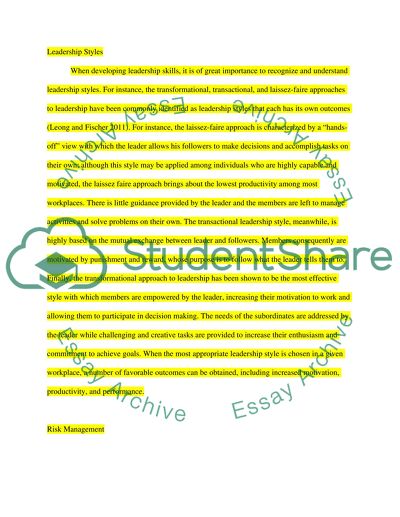Cite this document
(“Personal Development as a First Line Manager Essay”, n.d.)
Retrieved from https://studentshare.org/environmental-studies/1405139-personal-development-as-a-first-line-manager
Retrieved from https://studentshare.org/environmental-studies/1405139-personal-development-as-a-first-line-manager
(Personal Development As a First Line Manager Essay)
https://studentshare.org/environmental-studies/1405139-personal-development-as-a-first-line-manager.
https://studentshare.org/environmental-studies/1405139-personal-development-as-a-first-line-manager.
“Personal Development As a First Line Manager Essay”, n.d. https://studentshare.org/environmental-studies/1405139-personal-development-as-a-first-line-manager.


